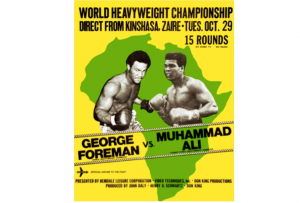…. HUMAN RIGHTS ….
An article by Varun Soni in the Huffington Post (reprinted according to the principle of “fair use”)
Muhammad Ali was the greatest athlete of the 20th century and arguably the most famous athlete to ever live. His extraordinary record of athletic achievement includes six Kentucky Golden Gloves titles, two national Golden Gloves titles, an Olympic gold medal, and three World Heavyweight Championships. Heralded for his eloquence and loquaciousness, Ali was a poet with a flair for the theatrical who redefined what it meant to be an athlete in the public sphere. Indeed, the convergence of his craft and charisma resurrected professional boxing with Ali as its undisputed ambassador. Named “Sportsman of the Century” by Sports Illustrated and “Sports Personality of the Century” by BBC, it is difficult to accurately convey how dramatically Ali transformed the global sports landscape. But despite Ali’s unparalleled accolades as a professional boxer, his most profound legacy is that of a moral leader, peace ambassador, civil rights icon, and global humanitarian, a legacy that emerges from his deep religious beliefs and spiritual convictions.

Click on image to enlarge
In 1964, a promising young boxing champion named Cassius Clay converted to Islam, became Muhammad Ali, and embarked upon one of the most visible and impactful faith journeys in American history, a journey that would take him from being one of America’s most divisive figures to one of its most beloved. Ali came to Islam through the Nation of Islam and his personal friendship with Malcolm X, who challenged Ali to translate his religious beliefs into social action. Like Malcolm X, Muhammad Ali would eventually leave the Nation of Islam, but he continued his faith journey as a Sunni Muslim, and later as an adherent of Sufism, which represents the mystical dimensions of Islam.
In 1967, Muhammad Ali refused to participate in the draft for the Vietnam War, citing his religious beliefs in his petition as a conscientious objector. As a result, in the prime of his boxing career, Ali was convicted of draft evasion, stripped of his heavyweight championship, and banned from professional boxing. For almost four years, Ali appealed his case while remaining one of the most prominent and outspoken opponents of the Vietnam War. Finally, in the landmark decision of Clay, aka Ali, v. United States (1971), the United States Supreme Court unanimously upheld Ali’s conscientious objector claim and dismissed all charges against him.
(Article continued in the right column)
(Article continued from the left column)
By sacrificing the peak years of his professional boxing career and relinquishing his heavyweight boxing title in order to promote a culture of peace, Ali became firmly enshrined in the pantheon of the world’s great peace icons. In 1998, Ali’s status as an international peace luminary was cemented as he was officially named a United Nations Messenger of Peace. Ali was also the recipient of Amnesty International’s Lifetime Achievement Award, Germany’s Otto Hahn Peace Medal, and the Presidential Medal of Freedom.
Muhammad Ali’s journey from sportsman to statesman, from fighter to peacemaker, was more than just symbolic. Indeed, his post-fighting career is replete with examples of his courageous public diplomacy initiatives. He negotiated the release of 15 American hostages from Iraq during the first Gulf War; he spearheaded reconciliation programs in South Africa and Vietnam; he delivered medical aid and supplies to Cuba; and he traveled to North Korea and Afghanistan as a goodwill ambassador. Additionally, as a philanthropist, he raised millions of dollars for Parkinson’s research, distributed meals to homeless families in the United States, and participated in the Make-A-Wish Foundation and the Special Olympics.
Muhammad Ali’s dedication to global peace, public diplomacy, and philanthropy exemplified his foundational belief in Islam as a religion of peace. Accordingly, throughout his public religious life, Ali remained the most important Muslim in the world. His renowned status in the Muslim world made him a significant global leader, for he is as beloved in Kenya and Kuwait as he is in his native Kentucky. And after 9/11, Ali publicly denounced terrorism while promoting the core values of Islam – peace, charity, humility, justice, beauty, and grace – prompting Slate magazine to describe him as the “Dalai Lama of the post-9/11 world.”
Ultimately, Muhammad Ali’s root identity as an American Muslim empowered him to claim a mantle of moral authority and do the prophetic work of peace and justice. In doing so, he embodied the hopes, dreams, aspirations, and promise of the Muslim American community. Reflecting upon his unique faith journey, Ali said, “I set out on a journey of love, seeking truth, peace, and understanding.” His remarkable journey endures as a quintessentially American journey of reconciliation and redemption.